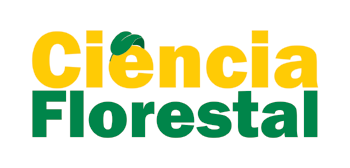ABSTRACT
The need to control exotic grasses in areas of ecological restoration for long periods is followed by high economical costs of application, collateral damage on regeneration and other less obvious environmental harms. Thus, it is necessary estimate such drawbacks in order to evaluate the cost/benefit rate of the application of these techniques. This study aimed to assess the damage caused by two control techniques of Guinea-grass (Megathyrsus maximus (Jacq.) B. K Simon & S. W. L. Jacobs), on pre-existing regeneration (environmental costs) in a 20-year reforestation site and estimate the economic costs of employing such techniques. Thirty 10 x 20m plots were divided into three groups: (CON) control, (ROC) mowing (using gas-powered brush cutters) and (HERB) mowing followed by the application of a glyphosate-based herbicide. We did a permanent inventory of all tree and shrub individuals, who were followed over a period of one year. No differences were found in mortality imposed by the initial mowing, neither in the mortality imposed exclusively by mowing nor in the mortality imposed exclusively by herbicide in HERB. After one year, there were no differences between mortality and species richness of the three groups. However, when the three groups were compared with themselves after one year, for plants > 1 m, we found a reduction on abundance in CON and reduction in species richness in HERB; whereas for plants < 1 m, ROC showed a reduction in abundance and HERB showed reduced abundance and species richness. Therefore, both techniques seem to affect more plants < 1 m (i.e., regeneration). The final economic cost of ROC was 34.1% bigger than the cost of HERB, and in spite of a likely reduction in costs to perform new interventions, proportional costs increased for scattered interventions over small areas. Both techniques were efficient to control Guinea-grass, but the use of glyphosate-based herbicide should be restricted to areas with low canopy cover, more maintenance-demanding sites, once the technique is more damaging on regeneration, since there was high mortality (73%) of individuals < 1 m in areas with dense grass infestation (100%).
Keywords:
adaptive management; Alien invasive species; Glyphosate





